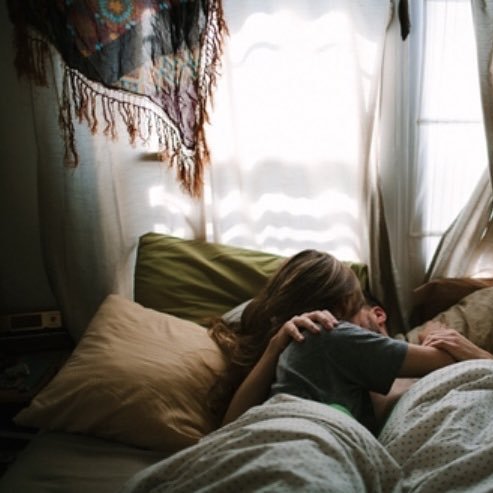A home safe is not at the top of everybody’s shopping list and when you’re asked the question, “What is the safest place to store valuables?” most people would understandably say in a security box in a bank. However, for certain items a bank may not be the best and your own home would be safer. For one, the contents of a bank deposit box are rarely insured and FDIC only insures deposits in accounts and not contents. So to improve security for yourself and your valuables, invest in a fire-proof home safe to store those items where a bank security box just won’t do. If you’re stuck on knowing what exactly should be home or bank monitored, take a look at these 12 Things to Keep in a Home Safe Rather than a Bank Security Box.
Reader Poll
Thanks for sharing your thoughts.
Want more like this? Subscribe for personalized picks.
Successfully subscribed.
Check your inbox for personalized content.
1. Identity Papers
Passports and birth certificates are often needed at the ready and if they are in a bank security box, you can only retrieve them during banking working hours. Furthermore, some boxes are sealed and only released upon notice of death. These items are often needed immediately to prove a person’s identity and age.
2. Insurance Documents
If your house is damaged in any way you will need information immediately. A home safe that is fire-proofed and protected would be ideal for keeping property insurance policies and agent contact info safe and handy so that you can quickly file a claim.
3. Important Legal Documents
Copies of documents, such as powers of attorney, living wills, and health care proxies need to be kept home safe and secure. Being able to access these documents immediately can help you execute the protection they are intended to provide.
4. Medical Information
Information about family doctors, prescription medications and contact details for the pharmacies you use could be invaluable and should be immediately accessible for health benefits, especially if you need a regular supply of new medication.
AI isn't just for techies—it’s now your financial wingman. Explore how Credit AI can make a difference in your credit journey.
5. Keys for Your Bank Security Box
This may be a given, but you would want these keys in a safe place which you can access and have peace of mind knowing exactly where they are.
6. Investment Papers
You might have important documents relating to investments, retirement plans, bank accounts and associated contact details. It would be inconvenient to store these in a bank security box and are better off in a home safe where you can refer to them when needed.
7. Social Security Cards
These are often needed to establish eligibility for benefits and other government needs.
8. Debt Details/Credit Statements
Details on any outstanding debts, due dates and relevant contact information is all information best kept to hand. These are documents that you should be referring to on a regular basis so you can keep on top of your finances and avoid bad credit.
9. Wills
It is essential to have a copy of yours and other’s wills where you are the executor. They are important to have ready at hand as security boxes are often sealed upon notification of the owner’s death.
10. Spare Keys and Titles to Vehicles
These are unlikely to be needed in a security box and are better off in a home safe for ease of access.
11. CDs, External Hard Drives, Copies of Photographs
It is important to protect your back ups of photographs in case of a fire or break-in. It is also a good idea to scan in beloved non-digital family photographs so you have a copy of these too. Family photographs and memories are irreplaceable.
12. Jewelry, Cash, Rare Coins, Etc
These are items you may want to readily access.
These are a dozen things to keep in a home safe rather than a bank deposit box. However, it is still advisable to take other precautions to keep your important documents safe. Serious house fires can heat up and melt the contents of a home safe, rendering them partially useless. Thus, be sure to take photographs of the important documents physically in the safe in your home and keep copies of the photos on a USB or external hard drive (that is also kept in a safe place) to prove to insurance companies that you have performed safety precautions. A concrete security box that is underground or in your basement would also a safe place that is hidden from view from burglars. Nonetheless, do not automatically put everything in a bank security box as these 12 Things to Keep in a Home Safe Rather than a Bank Security Box should show you. Do you have unusual places where you keep your valuables?
Top Photo Credit: weheartit.com
Reader Poll
Thanks for sharing your thoughts.
Want more like this? Subscribe for personalized picks.
Successfully subscribed.
Check your inbox for personalized content.
Don't Miss the Latest Version
Get the latest stories, save favorites, and share with friends — all in one place.
Create your profile. Earn badges. Level up your reading.
Join Allwomenstalk to track your streaks, collect badges, and earn XP for the things you already do—reading, sharing, and taking quizzes.
- 🔥Daily streaks with gentle boosts for 3, 7, and 30 days.
- 🏅Collect badges like Reader I–III, Socialite, and Quiz Ace.
- ⚡️Earn XP for reads, deep reads, likes, comments, and shares.
It’s free. Takes 30 seconds. Already have an account? Sign in.




Feedback Junction
Where Thoughts and Opinions Converge